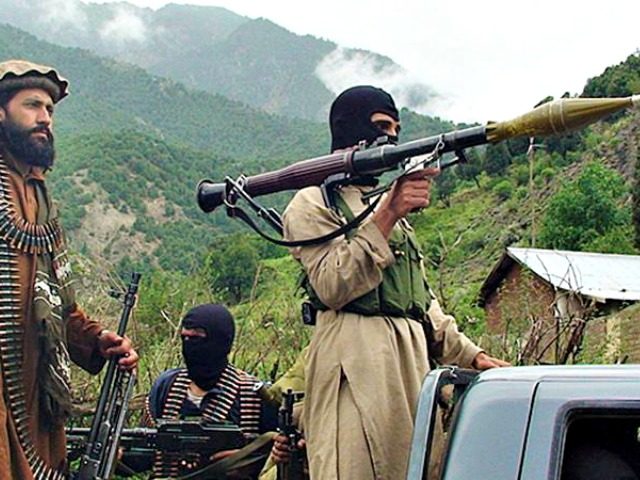WASHINGTON, D.C. – President Trump is expected to announce a new plan for Afghanistan that will involve several thousand more U.S. troops, as well as putting more pressure on its neighbor and supposed U.S. ally Pakistan.
The so-called “mini-surge” of U.S. troops to mostly train-and-advise Afghan forces has been panned as more of the same, but a newer element of the strategy would be putting more pressure on Pakistan, which has acted as a safe haven for the Taliban and other terrorist groups attacking U.S. forces in Afghanistan.
“The one thing that we can be pretty sure of is that the government is going to get tougher on Pakistan for its support for terrorist organizations that have attacked U.S. troops in Afghanistan,” said American Enterprise Institute Resident Fellow Sadanand Dhume.
“You can’t win a war if the enemy has a safe haven,” he said in a phone interview with Breitbart News.
The U.S. has given Pakistan $33 billion in aid since the 9/11 terrorist attacks, on the premise that it would help go after terrorists taking refuge within its borders.
Although Pakistan has at times been helpful in going after the Pakistan Taliban, it has been reluctant to go after the Afghan Taliban or Taliban-affiliated terrorists like the Haqqani Network.
The U.S.-Pakistan military relationship particularly soured after Al Qaeda leader and 9/11-mastermind Osama bin Laden was found hiding in a compound in an area populated by the Pakistani military elite.
Dhume said how far the Trump administration will go on Pakistan is not yet clear. He said there are several options the Trump administration could take regarding Pakistan, ranging from mild to severe.
On the milder side, the U.S. could cut off some military assistance. A stronger response could be to cut off all assistance. The administration could also sanction specific officials of the Pakistani military or the Pakistani Inter-Services Intelligence (ISI), making it harder for them to travel or for their children to study in western universities.
A yet harsher option would be to end Pakistan’s status as a major non-NATO ally, a designation for close allies who have strategic working relationships with the U.S. military but who are not in NATO.
The “ultimate” response in the whole spectrum would be to declare Pakistan a sponsor of state terrorism, Dhume said.
Dhume said he predicts, given the “modest and incremental” approach to a troop increase, that a new policy against Pakistan would also be modest and incremental.
“Nonetheless, it will still be significant,” he said. “The significance would be in us explicitly recognizing that Pakistan is part of the problem in Afghanistan … It will be an important marker.”
He said that there was for a while a “certain hope” that, with the right kind of incentive, the Pakistanis would be friends and allies and fight alongside the U.S., not only against the Taliban, but against radical Islam more broadly.
“We’ve been discovering over the years that, in fact, they’ve been playing what many people consider a double game,” he said. Pakistan has helped “just enough to keep the aid flowing but at the same time backing some of the most dangerous groups that operate in Afghanistan.”
Some experts argue that taking a tougher line against Pakistan could jeopardize the relationship and push them to be more recalcitrant or to get closer to China. Pakistan has also retaliated against the U.S. by closing supply routes into Afghanistan. But Dhume said Pakistan is already as close to China as they could be, and with less U.S. troops in Afghanistan and fewer materials flowing in and out of Pakistan, there is less leverage.
“The problem with the Obama administration was the carrots were too juicy and the sticks were too small,” he said.
“We need fewer carrots and much bigger sticks.”
The Trump administration is also expected not to announce any timeline for withdrawal, unlike the Obama administration, which gave the Taliban an incentive to wait until after the drawdown.
After U.S. troops ended their combat mission in 2014, the Taliban made a comeback and now control almost half of the country.
The lack of a timeline will also help convince Pakistan to begin behaving.
“It serves to warn the Pakistan Army that the U.S. is in Afghanistan to stabilize the situation and we’re not about to leave,” Dhume said.

COMMENTS
Please let us know if you're having issues with commenting.